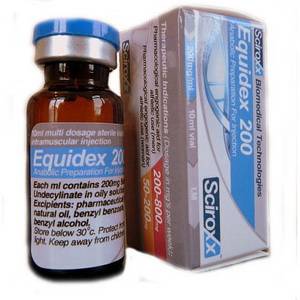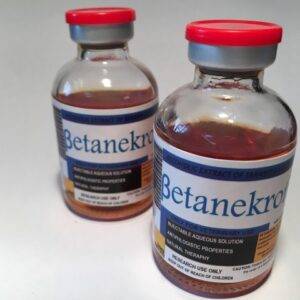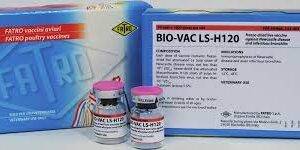Equidex 200
Equidex 200 is a veterinary corticosteroid injectable solution used primarily in horses to manage inflammation and treat conditions associated with allergic reactions, inflammatory diseases, or immune-mediated disorders. Here’s a detailed account of Equidex 200:
Active Ingredient:
Dexamethasone: Equidex 200 typically contains dexamethasone, a potent corticosteroid known for its anti-inflammatory and immunosuppressive properties.
Uses of Equidex 200:
Anti-inflammatory: Dexamethasone is widely used to reduce inflammation caused by musculoskeletal conditions such as arthritis, joint inflammation, and tendonitis in horses.
Allergic Reactions: Equidex 200 is effective in treating allergic reactions in horses, such as skin conditions like hives or dermatitis.
Immune-mediated Diseases: It can help manage autoimmune conditions where the immune system attacks the horse’s body, causing inflammation or tissue damage.
Shock Treatment: Sometimes, corticosteroids like dexamethasone are used to treat shock or other life-threatening conditions in horses.
Respiratory Conditions: It is used in horses with respiratory diseases like equine asthma, where inflammation needs to be reduced to improve breathing.
Dosage and Administration:
Administration Route: It is administered via intramuscular (IM) or intravenous (IV) injection.
Dosage: The dosage depends on the horse’s condition, severity of symptoms, and the veterinarian’s recommendation. Common dosages might range between 2-10 mg, but this can vary greatly depending on the
The dosage of Equidex 200, which contains dexamethasone, depends on the condition being treated, the horse’s weight, and the veterinarian’s guidance. Generally, the recommended doses for horses can vary based on the severity of the condition and the route of administration. Here are some general guidelines:
Dosage Guidelines:
For Intramuscular (IM) or Intravenous (IV) Injection:
Initial Dose: 0.05 mg to 0.2 mg of dexamethasone per kilogram of body weight.
For a horse weighing approximately 500 kg (1,100 lbs), the dose would typically range from 25 mg to 100 mg of dexamethasone.
Maintenance Dose:
After the initial dose, the maintenance dose may be reduced, depending on the horse’s response to treatment. Lower doses are often used as the symptoms improve.
Frequency:
Acute Conditions: A single dose might be effective, but additional doses may be required depending on the severity and response.
Chronic or Severe Conditions: Dexamethasone can be administered over a few days, gradually reducing the dose once the horse’s symptoms are under control.
Important Considerations:
Always follow the veterinarian’s advice when determining the correct dosage, as improper dosing of corticosteroids can lead to serious side effects like laminitis or immune suppression.
Long-term Use: Should be avoided unless necessary, as prolonged corticosteroid use can cause significant health risks. Equidex 200
Maximum Dosage:
The maximum safe dose for a horse will depend on factors like the condition being treated, the horse’s health, and their size, but large or repeated doses should be administered with caution.
Administration Route:
Can be administered either intramuscularly (IM) or intravenously (IV), depending on how quickly the medication needs to take effect.
treatment plan.
Benefits:
Fast-acting: Provides rapid relief from inflammation and allergic reactions.
Versatile: Can be used for a variety of conditions ranging from skin issues to respiratory problems.
Side Effects:
Suppression of the Immune System: Prolonged use may suppress the immune system, making the horse more prone to infections.
Laminitis: There is a risk of developing laminitis (inflammation of the tissues inside the hoof), especially with long-term or high-dose use. Equidex 200
Gastrointestinal Issues: Potential for stomach ulcers or other gastrointestinal side effects.
Weight Gain: Long-term use of corticosteroids like dexamethasone may cause fluid retention and weight gain.
Precautions:
Veterinarian Guidance: Should always be used under veterinary supervision to ensure proper dosage and management of any potential side effects.
Avoid Long-term Use: Prolonged or excessive use of Equidex 200 may lead to serious health complications like laminitis or immune suppression.
Conclusion:
Equidex 200 is a valuable medication for managing inflammation, allergies, and immune-mediated conditions in horses. However, it must be used with caution, following proper veterinary advice, due to the potential for side effects, especially with long-term or high-dose administration.





Reviews
There are no reviews yet.